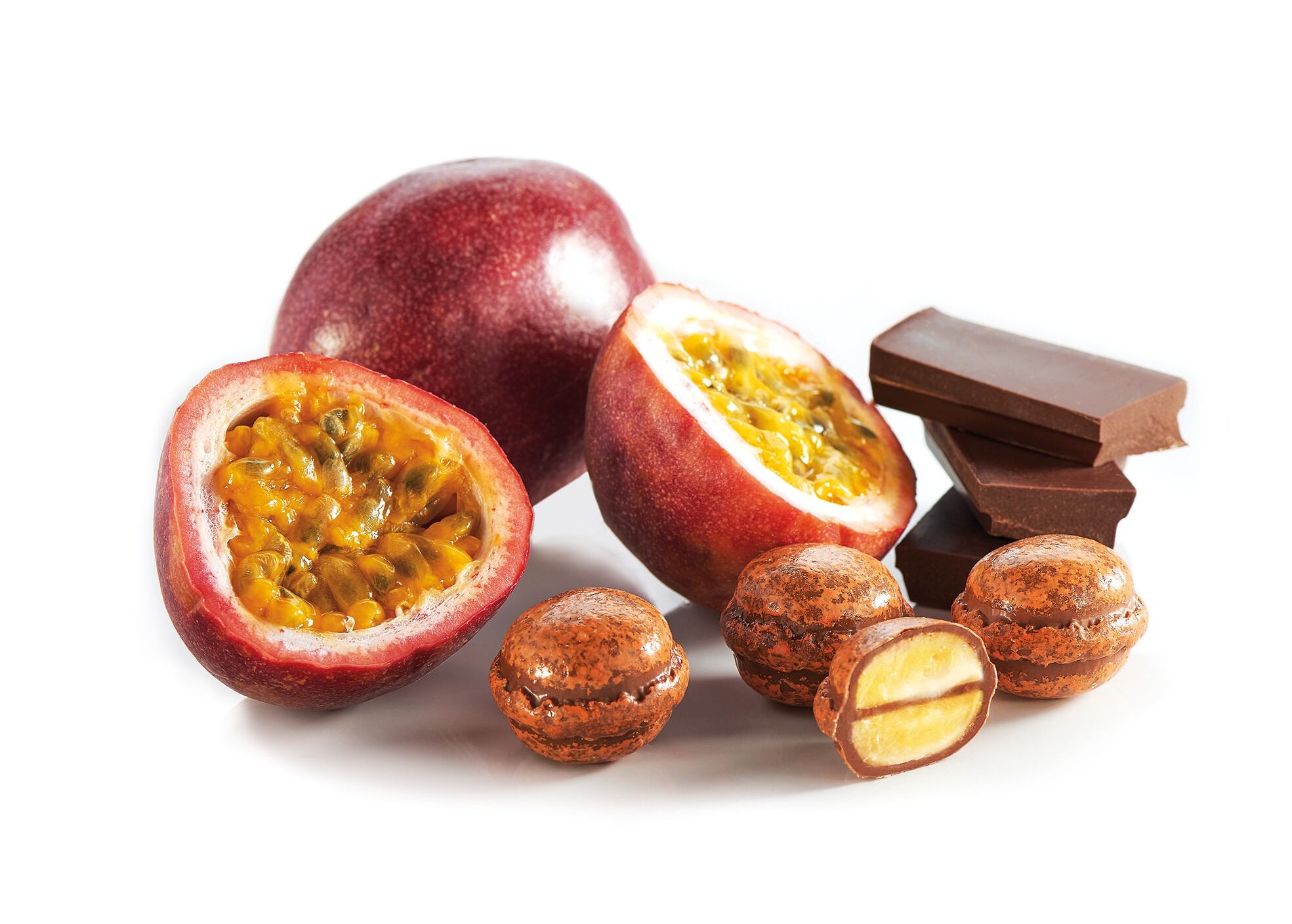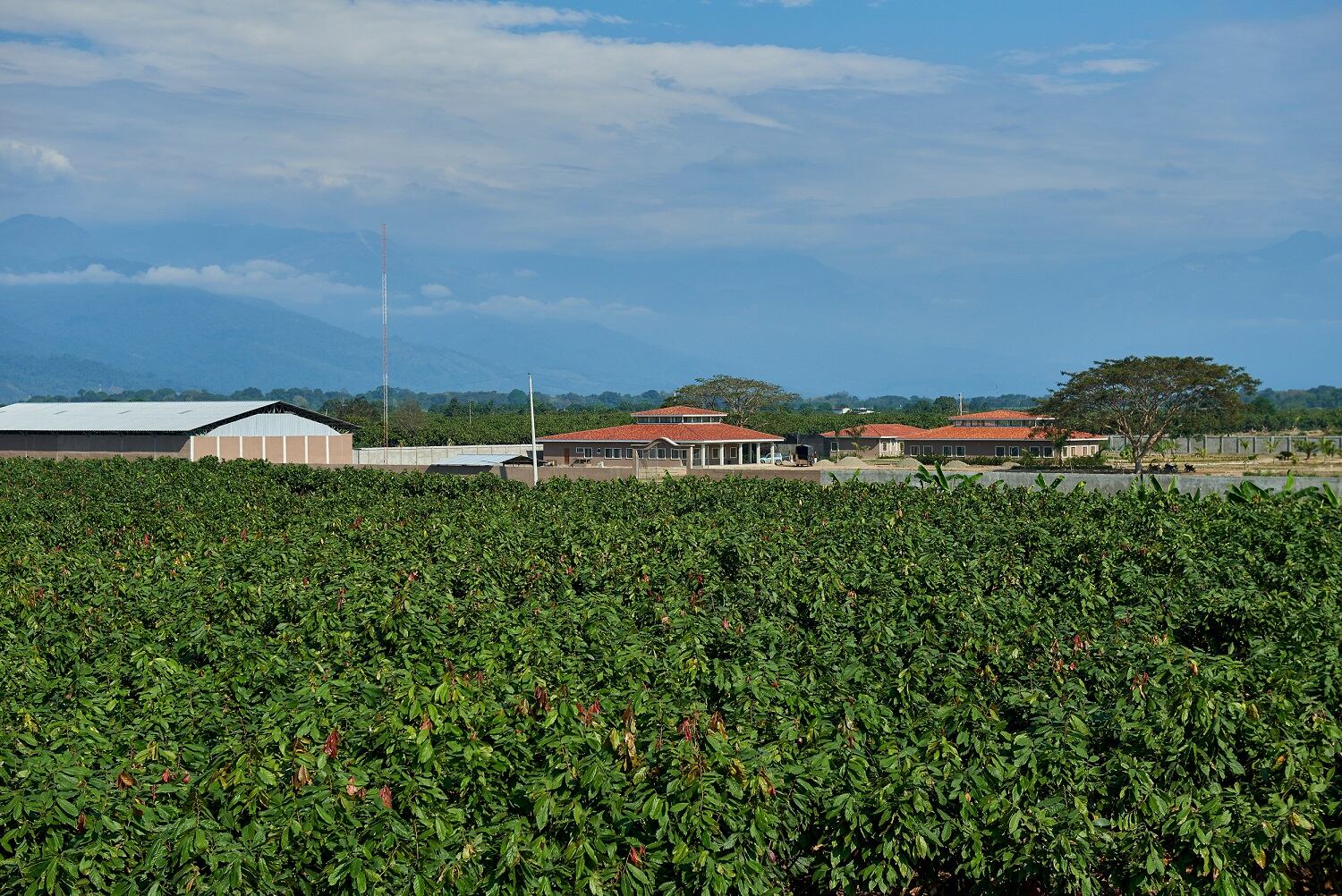The company owned by third-generation family business Salpa operates 70 Yves Thuriès branded shops in France, but sells in wholesale in international markets such as the US.
The business takes its name after award-wining French pastry chef Yves Thuriès.
Speaking to ConfectioneryNews at trade fair yummex Middle East last month, Charlotte Courcier, Salpa’s export general manager, said: "The main business [for Yves Thuriès abroad] is in the US for now. Also in export we started last year with Dubai and we've just started in Qatar and Kuwait.”

Macaroon-shaped chocolates
Yves Thuriès is hoping consumers in the region will take to its macaroon-shaped chocolates with tropical flavors launched last year.
"Inside we put the real fruit in the ganache (coconut, passion fruit or key lime),” said Courcier.
A typically macaroon has a shelf-life of just a few days, but Yves Thuriès' macaroon-shaped chocolates have a 12-month shelf life due to a special coating process, which makes the texture crunchy on the outside and smooth on the inside.
The macaroons come in 177 g stand-up pouches for a suggested retail price of $5 per bag or in 33-piece or 8-piece boxes.
Different approaches: At home and abroad
The Yves Thuriès brand is sold only in the company's own boutiques in France, but is listed with premium retailers in export markets.
Salpa hopes to have 100 Yves Thuriès shops across France in the near future.
Yves Thuriès' three main export markets are the US, Japan and Dubai.
"In export we want to be more in premium department stores,” said Courcier. “[In the Middle East] we are focusing on Qatar, Kuwait and Dubai. Saudi Arabia is complicated because of the economic situation."
Yves Thuriès established a US sales office in Miami in 2013. It also operates a warehouse in New Jersey to service the market. Costco is its largest US customer.
Courcier said Yves Thuriès' price points were similar to Lindt and Godiva in the US, but the French company does not yet have the recognition of these two premium chocolate leaders.
Customized by market
Salpa recently employed a design agency to rebrand Yves Thuriès and refresh the logo.
Courcier said: "We completely renewed the brand, the product, the packaging to be more suitable depending on the market, so we can create some recipes - for example with key lime for the US and strawberry for Japan. We really customize our recipe depending on the market."

Plantation in Ecuador
The bean-to-bar chocolate maker has a cocoa plantation in Guayaquil, Ecuador, which it acquired two years ago. Almost all of the company's cocoa comes from its plantation.
Yves Thuriès' 540-hectare San Fernando plantation employs 106 farmers and produces 540 metric tons a year.
"The cocoa is only for our needs - we don't sell to other customers," said Courcier.
All the company's cocoa for the French market comes from its own plantation, but it uses some volumes from others sources for its exported chocolate.
"But we target to have everything from Ecuador in maybe two or three years," said Courcier.
Yves Thuriès' chocolate is produced at two factories in France. The business also sells to B2B customers in the restaurant and hotel sectors.
Yves Thuriès' – founded in 1991 – has around 50 employees and annual revenues of approximately €14m ($16.4m), according to Salpa’s website.
Parent company Salpa also operates other chocolate businesses such as Schaal Chocolatier and Pfister Chocolatier as well as tea and coffee under the brands Coffea and Comptoir Français du Thé. Salpa recorded €80m ($94.2m) revenues in 2016.
